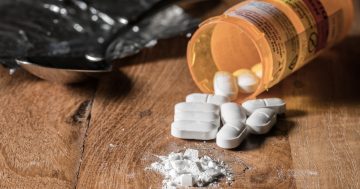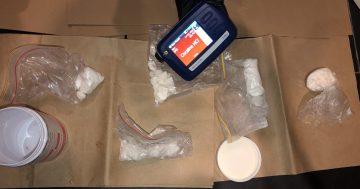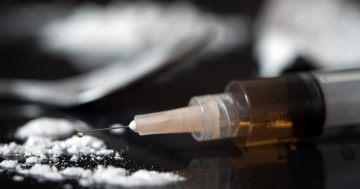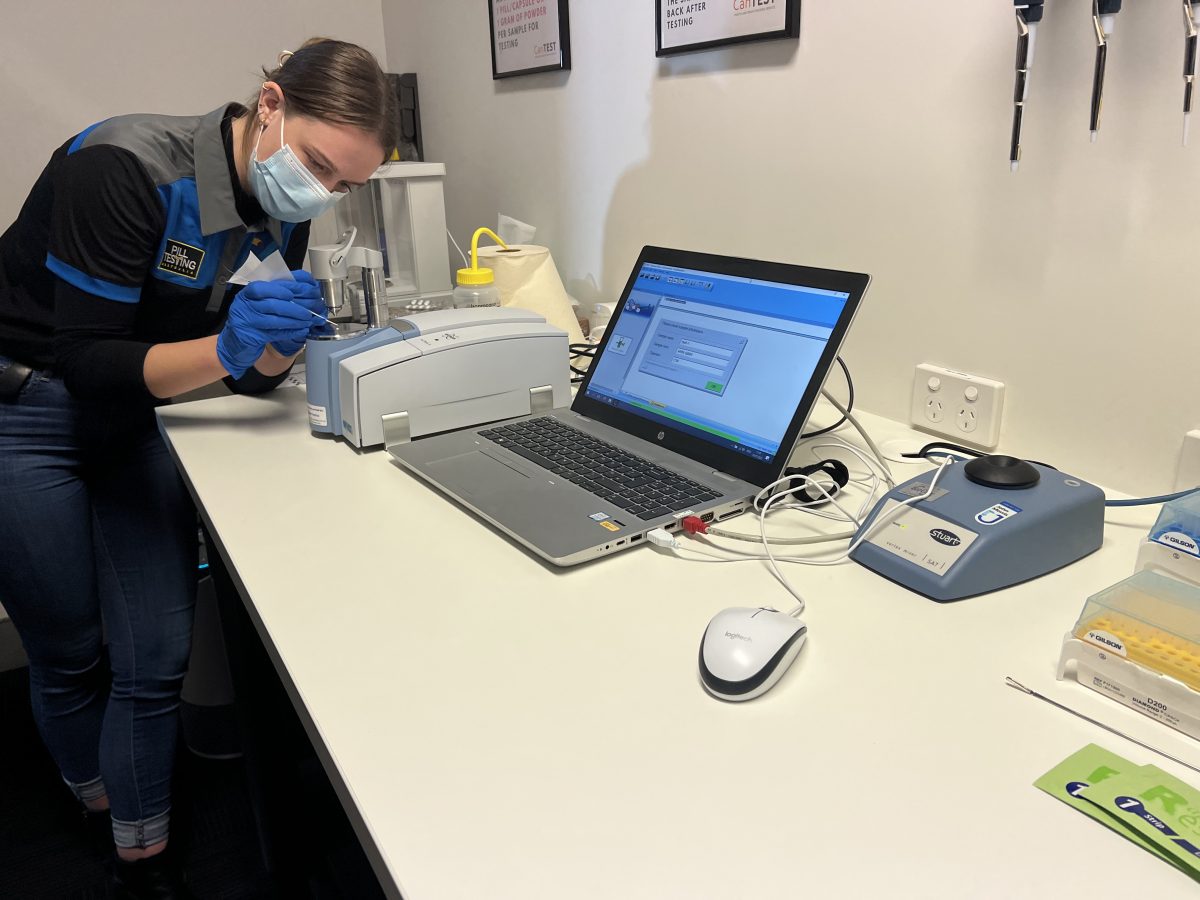
Earlier this year, the ACT opened the country’s first trial of a fixed pill testing site. Photo: Lottie Twyford.
The latest national wastewater report shows drug consumption to be falling across the country, but in the ACT, oxycodone and cannabis consumption soared well above the national levels.
It’s likely opioid use fluctuated throughout COVID-19 due to various restrictions on elective surgery and access to other medical treatment, although oxycodone consumption in June has yet to return to pre-pandemic levels of use.
Oxycodone use spiked in 2018 in the ACT.
The drug can be prescribed by doctors to relieve moderate to severe pain but some people use it to become intoxicated.
Cannabis use fell in the ACT from a yearly peak in February but remained well above the national average.
Its use in the Territory was in line with regional areas across the country (30,000 mg of TCH per 1000 people per day). The national average was 16,000.
An increase in heroin consumption in the last 12 months has also been identified in the Territory.
In June, an estimated consumption of 10 doses per 1000 people in the ACT was recorded. This was a jump from April’s two doses per 1000 people per day.
The national average was six per day.
However, Canberra’s consumption of alcohol, cocaine, fentanyl, ketamine, MDA, methylamphetamine and nicotine were all well below the national average in June.
Data for the latest Australian Criminal Intelligence Commission (ACIC) report was collected in April and June this year, and more than half of the country’s population was included from the sampling of 57 wastewater sites.
It’s also the first time the latest census data has been included, leading to more accurate population data.
Nationally, the consumption of most illicit drugs increased.
Methylamphetamine consumption increased and heroin consumption remained relatively stable in capital city sites but increased in regional sites.
ACIC CEO Michael Phelan has attributed this to a decline in supply due to market forces like seasonal factors as well as major seizures of some drugs from organised crime groups.
It’s believed MDMA consumption has decreased since December 2019 because of the decisions of serious and organised crime groups in Europe, which are key to the supply of MDMA in Australia.
“Some of these groups appear to be transitioning from the manufacture of MDMA to methylamphetamine, which appears to be impacting the supply side of the Australian market. There were also a number of large seizures of cocaine over the past year that may have impacted the market,” Mr Phelan said in a statement.
The report said most local drug markets are close to returning to pre-COVID-19 settings.
A week ago, the ACT Government took the nation-leading step of passing laws to decriminalise the possession of small amounts of some illicit drugs, including cocaine, ice and MDMA.
The laws will come into effect in October next year.
From that date, anyone caught with the prescribed substances will either be fined, cautioned or referred to a health program.
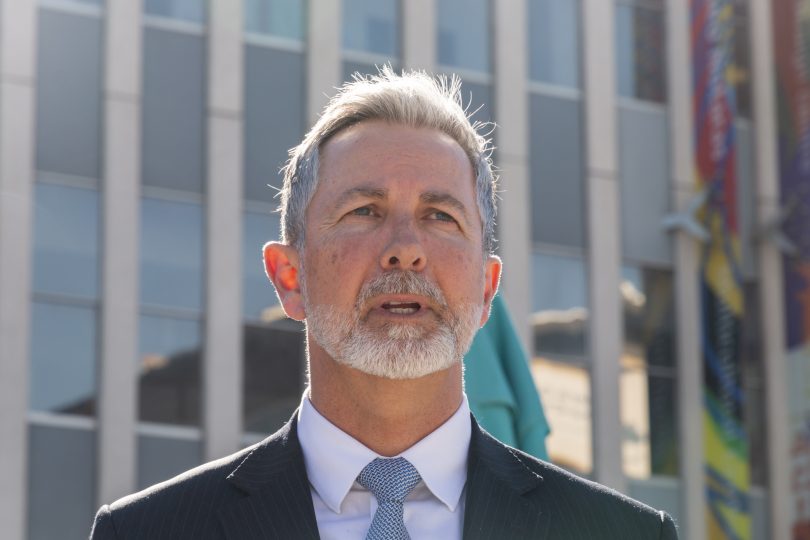
Opposition spokesperson for police Jeremy Hanson confirmed that if elected in 2024, the Canberra Liberals would roll back drug decriminalisation laws. Photo: Region.
Drug reform advocates have warned that the Territory’s drug and alcohol support system must be adequately resourced to cope with demand.
Those opposed to the laws, including the Canberra Liberals, argue the “dangerous laws” will mean the ACT becomes a hotbed for drug trafficking and that drug consumption will only increase.
Police have shared some of those concerns and remain alarmed about a likely increase in drug driving.
Earlier this year, the ACT also opened the country’s first fixed pill testing site in Civic under a six-month trial period.
Results so far show almost a third of substances taken in for testing have been thrown out. New substances have also been identified in testing.












